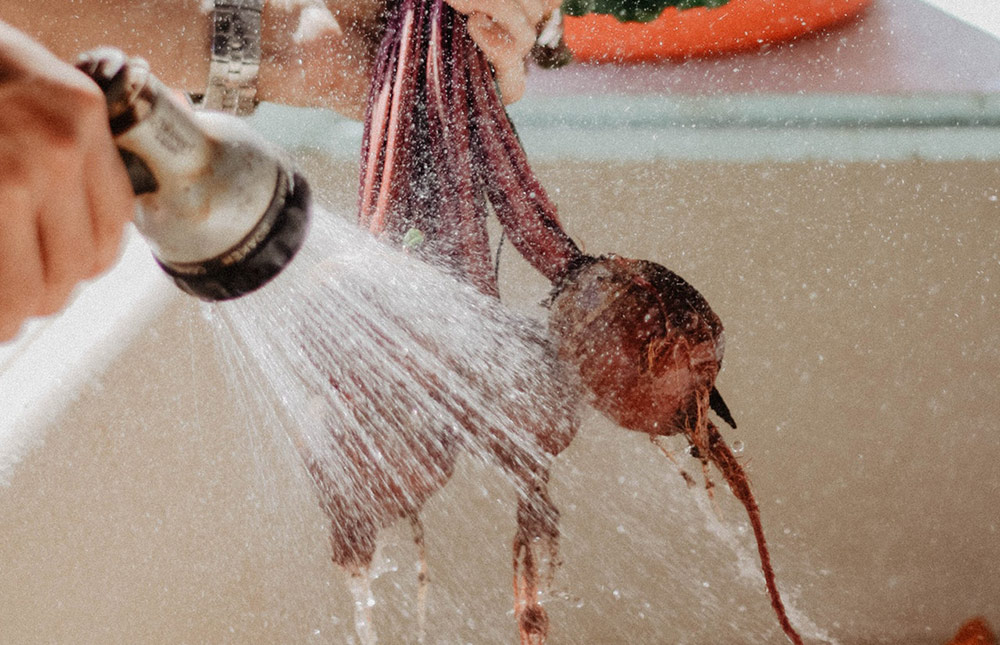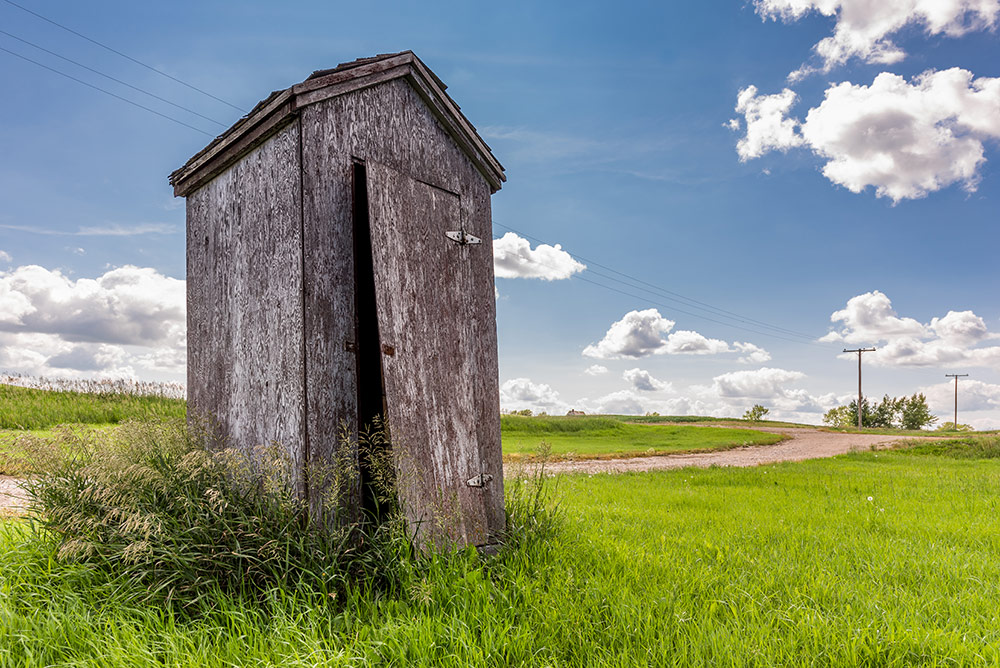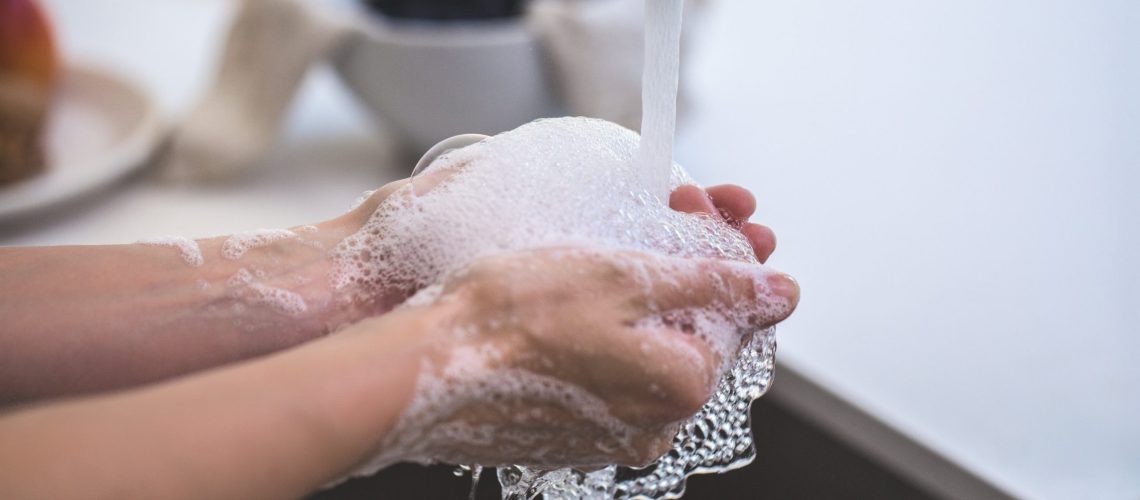This simple guide will help you to understand off-grid water treatment. Wastewater treatment doesn’t have to be hard you just need to know a few easy concepts. What solutions are available and what if any laws you need to follow for your area. There are two main areas of wastewater treatment solutions, both greywater and blackwater.
What is Greywater?

To put it simply, greywater is any wastewater that you generate in your house that isn’t from your toilet. This includes water from your showers, baths, basins, washing machines and kitchen sink. Up to 75% of all wastewater from a household is greywater. If you’re on the grid then this water just goes down the drain and into the sewer system. In some countries and regions, greywater is treated and re-used on the property. This is especially true for countries that have suffered drought for many years including Australia.
Greywater usually contains dirt, soaps, grease, hair, and other waste found when cleaning clothes, dishes or yourself. Reusing greywater in an off-grid build is a great way to reduce your water wastage and pottable water requirements. The number one use for greywater is for gardens. It’s great for ornamental plants or fruit trees. You shouldn’t use greywater on vegetable gardens.
Rules and regulations for Greywater
Depending on where your off-grid build is you will need to contact your local municipality to find out what you can and can’t do with your greywater. A lot of places will not allow you to store any greywater and it must be distributed as soon as it is created. This is why it is great for gardens.
The best thing to do is to find your local council/county website and look for their building and water treatment rules. You could also go into the office and ask if they don’t have a website or you can’t find the information. There is a lot of information available from third parties like Greywater Action Group in the United States or the various councils of Australia.
What is Blackwater?

Blackwater or sewage is the other wastewater generated by your household. Blackwater is defined as any water that contains fecal or other human waste. This is usually the wastewater from your toilets and usually contains nasty pathogens that need to be treated carefully. This includes all fecal and urine matter as well as toilet tissues. Blackwater is what goes directly into the sewer systems or septic tanks for older properties or in regions that do not have central sewer systems.
When you’re connected to the grid you blackwater treatment plan is very simple. It goes into your sewer system and that is that. In an off-grid water treatment plan, you need to consider how you will handle this. Do you have access to pumping and removal or will you be completely off-grid requiring on-site treatment and dispersal?
Rules and regulations for Blackwater
Blackwater is very harmful to yourself and the environment if not handled properly. Your options for how you treat the blackwater will be highly dependent on your location and local authorities. Just like greywater treatment, the rules are different for everyone. What you might be able to do in one location you might not be able to do in another.
Blackwater must be treated with care and your treatment systems are different. The best course of action is to contact the local council/county and find out their requirements. You can also ask a local licensed plumber or water treatment supplier as they will know what the requirements are near your off-grid build.
Off-Grid Water Treatment
Now that you know what the two main kinds of wastewater in your off-grid build will be. It’s time to discuss what your off-grid water treatment options are. Greywater treatment is the easiest and most affordable to work with while your blackwater will require planning, approvals and more costs.
Greywater treatment
Off-grid greywater treatment is very similar to the on-grid solutions available. You can dispose of the greywater with your blackwater. This is not an efficient use of greywater and should only be considered if it is necessary. The best option in an off-grid setting is to reuse the greywater.
Grey Water Reuse
In an on-grid greywater treatment plan, you will need to consider how much water you will divert onto your gardens. In an off-grid water treatment plan, due to the fact, your overall footprint will be smaller, this is not something most will need to consider. If your off-grid build is on the larger side there will probably be more greywater to treat so it’s best to consult a licensed plumber to find a solution that works for you.
Greywater recycling and reuse are achieved using a Greywater Diversion Device (GDD) or Greywater Recycling System (GRS). A GDD will divert the greywater and then disperse it over your garden. A GRS is a GDD with an extra step of filtering the water before distribution. It will include a grease trap to remove any heavy oils from the water before it goes out to your gardens. The grease trap will stop your pipes from clogging which is important when they are buried under the ground.
When you are designing your off-grid water treatment for your greywater reuse, you need to consider your surrounding environment. Ensure that any greywater you’re returning to the ground is away from rivers and underground water systems. Greywater is a great fertiliser for plants but can cause serious harm in your waterways to plants and animals.
Greywater Considerations
Depending on your climate and time of year a GDD/GRS might need to be installed with a way to turn it on or off. So that the system can be used only in the months where the temperatures allow it. The system design for these need to ensure that water doesn’t pool, otherwise you can have pest and insect problems.
Untreated greywater can have a lot of various chemicals and bacteria in it. Due to this, there are some limitations on what you should reuse your greywater for. Things to consider when building your greywater treatment system include
- Clearly mark any pipes that transport greywater
- Distribute the water to your gardens using sub-surface irrigation
- Don’t store untreated greywater
- If it’s raining, this should be diverted into your blackwater treatment system
- You cannot use bleach in your greywater system
- If you wash anything that contains fecal matter this should be done in a bucket and down your toilet instead.
- Don’t use greywater on your food gardens
It’s a good idea if you’re going to be reusing your greywater to ensure that you’re using biodegradable soaps and cleaning products. This will ensure that anything you put back out into the environment isn’t going to harm it or you. There are a lot of biodegradable household products available these days and you could always make your own.
Blackwater Treatment
Blackwater treatment is how you dispose of the waste from your toilets and a vital part of your off-grid water treatment system. Off-grid water treatment options for blackwater depend on the regulations of your area. The following treatment options are available and depending on your area will depend on the options available to you.
Outhouses
The outhouse is one of the oldest off-grid water treatment options for blackwater. This is a very simple system that puts an outhouse over a pit that is dug into the ground. Once the pit is full the outhouse is moved and the pit is filled with soil. Overtime the pit breaks down the waste and it is safe. These systems are still in use today in farms and properties around the world. This is a viable option if you are in a very remote location and the weather permits. Outhouses were often equipped with a bucket of sawdust as the first composting toilets.
Composting toilets
Composting toilets are a popular off-grid water blackwater treatment option. They do not require any regular servicing. It requires that you are reducing the amount of water in the system so that the waste can easily be dried and composted. Composting toilets are also popular in mobile homes, tiny homes and for those in the van life movement. Composting systems can use liquid chemicals in their operation, others use simple sawdust like the old outhouses above and some use worms. Composting toilets are either completely self-contained units or split systems.
A self-contained unit can be a simple bucket system or it could more closely resemble a normal toilet however they are much larger than a regular toilet. These units will often include fans to help with any smells and vent them outside. A good composting system should not produce much smell if maintained correctly. A split-system will often look like a standard toilet you’d get in an on-grid house and can often support multiple toilets to one composting unit. These are great for the larger off-grid builds or multi-storey builds.
Septic System
Septic systems are another kind of blackwater and greywater treatment system that has been around for a while and are still in use today. Like composting toilets, their servicing requirements are low. Septic systems are onsite storage tanks that will break down the waste over time. This is achieved through wasted settling and then anaerobic processes that reduce waste with the water being dispersed in an underground drainage bed.
Septic tanks receive all wastewater from the house including both greywater and blackwater. This makes it one of the easiest systems to install as it handles everything. Your internal plumbing requirements are the same as an on-grid system. These need to be designed specifically for your area and depending on your soil tests will depend on whether you can use a septic system.
Sewage Treatment Plant System
This is exactly what it sounds like. This is a mini treatment plant that you have onsite that will completely treat the water and provide effluent that can be released onto your garden or even into the waterways. As this is a completely engineered solution, this is usually one of the easiest to have approved. Some off the shelf solutions come pre-approved for certain regions.
There are various kinds of treatment plant options ranging from ones that need annual services to natural solutions that require no power and minimal maintenance. The Biorock Monoblock solution is completely passive and requires no power or chemicals. It uses natural processes to break down the waste and is the perfect solution for your off-grid water treatment for blackwater.
Natural reed beds are starting to become a popular solution in recent years. They are a great natural way to handle your blackwater waste. They provide multiple stages of filtration through ecological processes. It breaks down the waste as it moves through the system. The system is built with sand and gravel with reeds planted on top. Reed beds will usually have the solids removed in septic or another filtration system before the blackwater is dispersed over the system and slowly filtered and returned into the ground.
Conclusion
Off-grid water treatment is an important part of your off-grid build. If you dont plan this in advance and make sure you are following your local laws then there are serious issues that you could face with your build. The costs involved with the various systems also need to be considered. Your greywater can and should be recycled if your location allows this. Your options for blackwater treatment vary greatly from a bucket with some sawdust up to a full mini treatment plant.
Have you already finished your build? What solution did you go for? Feel free to leave your comments below.

